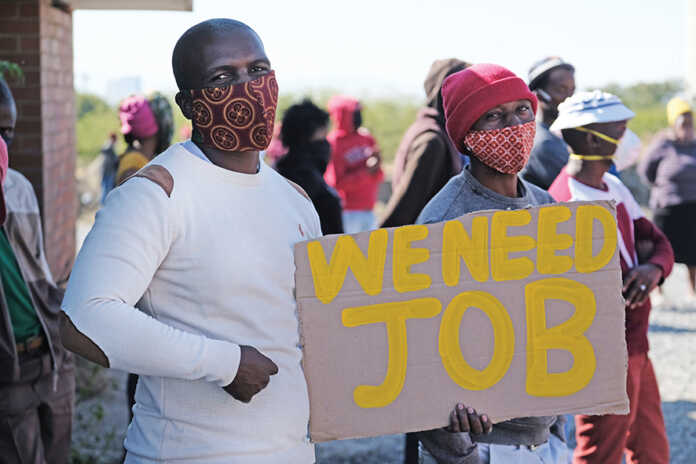The South African government spends R54-billion every year on labour market interventions but the money is not producing the big changes needed in fighting youth unemployment.
This was revealed by the director in the Presidency responsible for the Presidential Youth Employment Intervention (PYEI), Tshegofatso Walker, at BluLever Education offices in Braamfontein on Thursday.
Walker explained that the R54-billion covers skills training, labour market programmes, support for small businesses, and public employment projects.
The funds are shared among all departments, but Walker warned that the spending is not well coordinated.
“The R54-billion is a strength, not a weakness. The challenge is the utilisation of that R54-billion. These programmes often operate in isolation. Each department does their own thing, often in competition with each other.
“The programmes are not mutually reinforcing. There is not even a strategy at an overarching level for all of these programmes and all of this funding,” said Walker.
She said some programmes are not working and urged the government to be honest and brave about reorienting money towards initiatives that are more efficient.
Walker said a new youth employment strategy for the seventh administration has been finalised, focusing on aligning and strengthening interventions across the departments.
Job opportunities
The first quarter of the 2025/26 financial year recorded 234,000 earning opportunities through the National Pathway Management Network (NPMN).
Of these, 200,000 were created by SA Youth, and a further 33,000 came from the Department of Employment and Labour.
The Youth Employment Service, a private-sector-linked initiative, placed 4,762 young people into workplace experience opportunities in various sectors.
The Department of Higher Education and Training placed 3,600 TVET learners and graduates in workplaces, while the revitalised National Youth Service (NYS) has placed more than 84,000 young people in paid roles across communities.
The National Youth Development Agency (NYDA) supported 4 500 young entrepreneurs with financial and non-financial assistance during the quarter.
Walker said these measures are part of efforts to strengthen pathways for young people not only to get jobs but also to create their own.
Skills training sustained
She said one of the flagship initiatives, the Jobs Boost Outcomes Fund, is South Africa’s largest formal sector employment outcome fund, backed by the Department of Higher Education and Training and the National Skills Fund.
By June 2025, more than 8,100 young people had been enrolled in training programmes through the Jobs Boost Outcomes Fund, and over 5,400 were placed in jobs.
The Jobs Boost Outcomes Fund is a R300-million programme that pays training providers only when young people are placed in and sustain jobs.
“What we are trying to do is reorient the funding that’s in the skilling system away from an input-based training system towards a more outcomes-focused training system,” Walker said.
She said the skilling system receives R26-billion annually through the National Skills Fund and the Sector Education and Training Authorities (SETAs), but this must be directed towards incentives that encourage employment and not just training.



